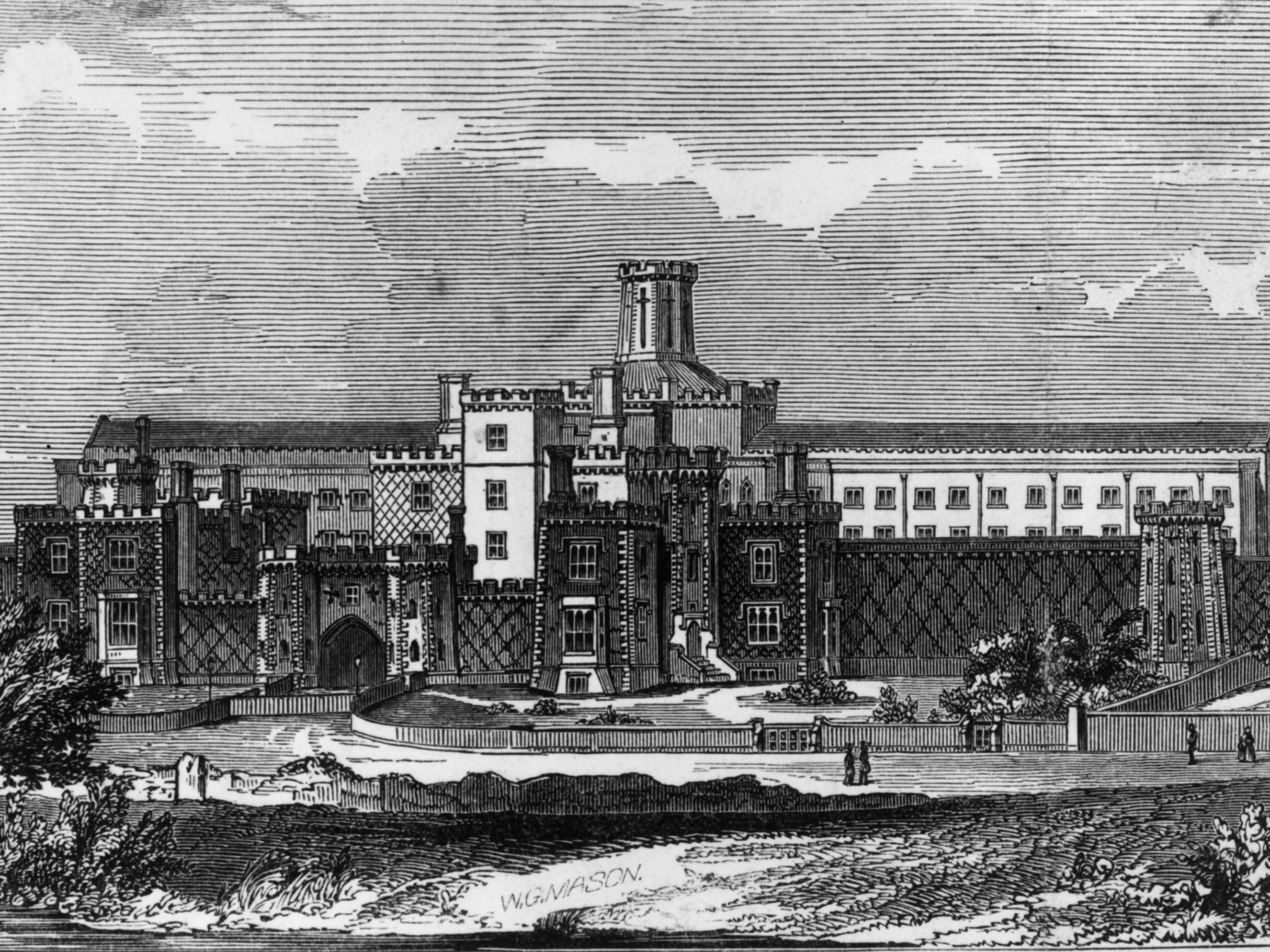The Book List: What was in Oscar Wilde's prison library?
Every Wednesday, Alex Johnson delves into a unique collection of titles owned by the great, the good and the infamous

Your support helps us to tell the story
From reproductive rights to climate change to Big Tech, The Independent is on the ground when the story is developing. Whether it's investigating the financials of Elon Musk's pro-Trump PAC or producing our latest documentary, 'The A Word', which shines a light on the American women fighting for reproductive rights, we know how important it is to parse out the facts from the messaging.
At such a critical moment in US history, we need reporters on the ground. Your donation allows us to keep sending journalists to speak to both sides of the story.
The Independent is trusted by Americans across the entire political spectrum. And unlike many other quality news outlets, we choose not to lock Americans out of our reporting and analysis with paywalls. We believe quality journalism should be available to everyone, paid for by those who can afford it.
Your support makes all the difference.Collected Works of Matthew Arnold
City of God by St Augustine
The Confessions of St Augustine
Various Works by Charles Baudelaire
The Pilgrim’s Progress by John Bunyan
The Prioress’s Tale by Geoffrey Chaucer
The Divine Comedy by Dante Alighieri
La Vita Nuova by Dante Alighieri
Collected Works of John Dryden
Trois Contes by Gustave Flaubert
La Tentation de St Antoin by Gustave Flaubert
Illumination by Harold Frederic
The Passes of the Pyrenees by Charles L Freeston
Faust by Johann Wolfgang von Goethe
Brittany by Baring Gould
Collected Works of Hafiz
The Well-Beloved by Thomas Hardy
The Longer Poems of John Keats
Epic and Romance: Essays on Medieval Literature by William Paton Ker
The Courtship of Morrice Buckler: A Romance by AEW Mason
An Essay on Comedy by George Meredith

The History of the Jews by Henry Hart Milman
History of Latin Christianity by Henry Hart Milman
History of Rome by Theodor Mommsen
Juvenile Offenders by William Douglas Morrison
A History of Ancient Greek Literature by Gilbert Murray
Apologia Pro Vita Sua by John Henry Newman
Two Essays on Miracles by John Henry Newman
Idea of a University by John Henry Newman
Essays on Grace by John Henry Newman
Provincial Letters by Blaise Pascal
Pensées by Blaise Pascal

The Renaissance by Walter Pater
Gaston de Latour by Walter Pater
Miscellaneous Studies by Walter Pater
Egyptian Decorative Art (paperback) by WM Flinders Petrie
Letters and Memoir by Dante Gabriel Rossetti
Quo Vadis by Henryk Sienkiewicz
The Student’s Chaucer by Walter William Skeat
Collected Works of Edmund Spenser
Treasure Island by Robert Lewis Stevenson
Collected Works of August Strindberg
The Study of Dante by JA Symons
Richard Wagner’s letters to August Roeckel
Collected Works of William Wordsworth
In 1895 Oscar Wilde was sentenced to two years of hard labour for gross indecency and was shuttled between Newgate, Pentonville and Wandsworth prisons before finally reaching Reading. Initially, his access to books was extremely limited but eventually he was allowed to build up a small library, examples of which were put on display at HM Prison Reading in 2016 and are listed above.
During prisoners’ first three months behind bars they were only allowed to read a prayer book, a hymn book and the Bible, but after special pleading by Liberal MP Richard Haldane, the authorities relented (Wilde gave the governor at Reading a special signed copy of The Importance Of Being Earnest as a thank you present for allowing more books in). Wilde was not only allowed to keep books in his cell, he was also permitted to leave his light on as late as he wanted to read them.

The first titles he asked for in June 1895 were The Confessions of St Augustine, various volumes of works by Baudelaire and Cardinal Newman, and one of the key books in his life, The Renaissance by Walter Pater. This was a leading text in the aesthetic movement and instilled in Wilde the drive to turn his life into a work of art. “The Library here contains no example of Thackeray’s or Dickens’s novels,” he wrote in one of his requests for new books. “I feel sure that a complete set of their works would be as great a boon to many amongst the other prisoners as it certainly would be to myself.”
Wilde was declared bankrupt and his personal library at home was split up and auctioned. Only around 50 are available in public collections and around 3,000 have never been tracked down. A reconstructed version is available on the Library Thing site (www.librarything.com) and explored in huge detail in Thomas Wright’s book Built of Books: How Reading Defined the Life of Oscar Wilde, which also reveals Wilde’s tendency to tear off and eat the top corner of each page as he read it.
‘A Book of Book Lists’ by Alex Johnson, £7.99, British Library Publishing
Find a list of the books US forces found on Osama bin Laden’s shelf here
Join our commenting forum
Join thought-provoking conversations, follow other Independent readers and see their replies
Comments